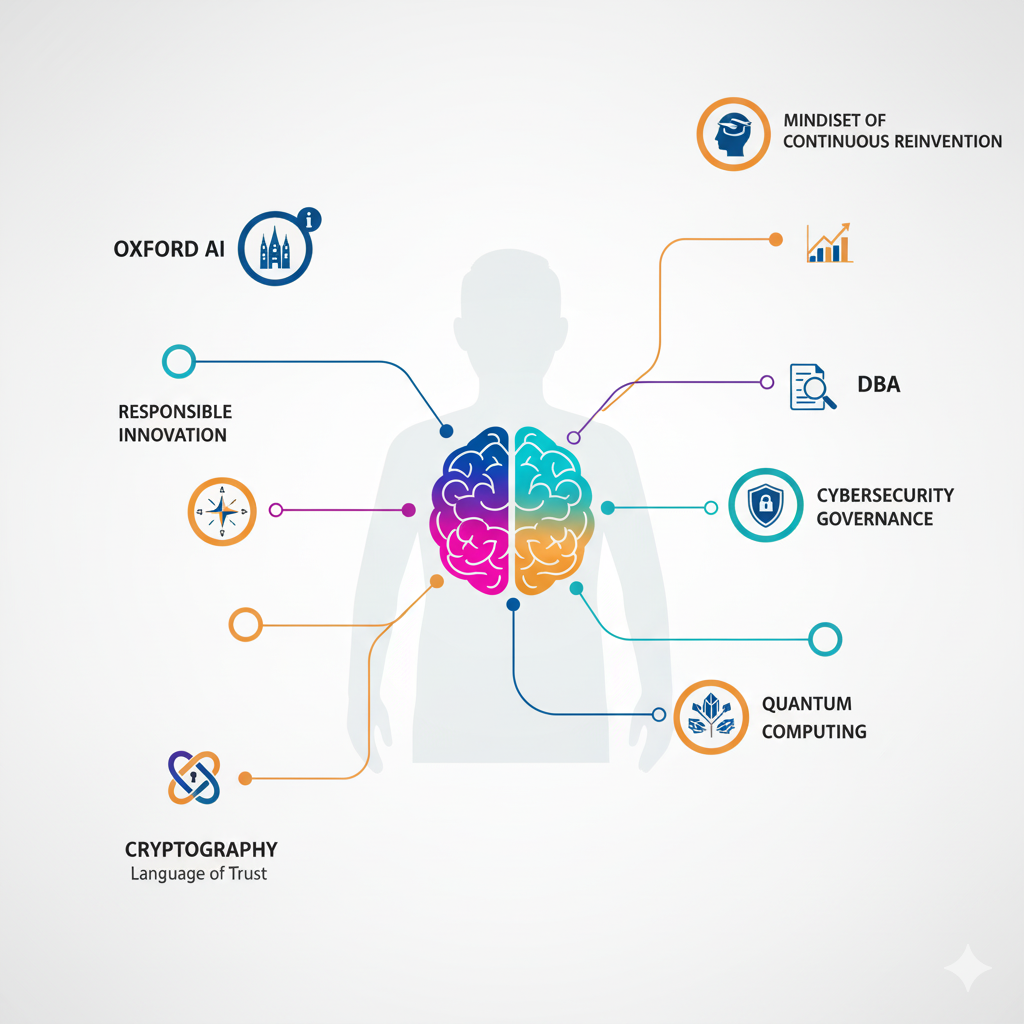The Ethical Pivot: How One Oxford AI Course Redefined My Leadership Philosophy
It all begins with an idea.
When I first enrolled in the Oxford Artificial Intelligence Program at the University of Oxford’s Saïd Business School, I expected a deeper understanding of algorithms and automation. What I got instead was a seismic intellectual transformation—one that redefined not just my career direction, but my fundamental philosophy of leadership itself.
My initial curiosity about how machines learn quickly evolved into a lifelong, urgent pursuit: understanding how humans lead, decide, and innovate in an age of intelligent, autonomous systems. Oxford didn’t just teach me AI; it awakened a way of thinking that still shapes every professional and academic step I take.
Beyond the Tool: Mastering Thought Leadership in AI
The program grounded me in the fundamentals of machine learning, automation, and data ethics, but its true power lay in the challenge it posed: to look beyond the technology and wrestle with governance, purpose, and moral architecture. It wasn't about mastering the tool; it was about mastering thought leadership in an AI-driven world.
I realized that leadership in this new era isn't about desperately racing against technology—it’s about understanding the complex ethical systems and frameworks that define it. Oxford gave me a compass that doesn't just point toward innovation; it points toward responsible innovation. That insight became my pivotal turning point: If technology is going to shape humanity, then leadership must consciously shape technology.
From Ethics to Ecosystem: The MBA and Doctoral Mission
Driven by that ethical revelation, I pursued my MBA at the Illinois Institute of Technology, focusing on the crucial intersection of strategy, technology management, and business transformation. I learned how to translate ethical insights into operational systems—designing strategy that is as data-driven as it is human-centered.
This momentum naturally carried me into my current pursuit, the Doctorate of Business Administration (DBA). My doctoral mission is a direct maturity of the questions Oxford planted: I'm now developing research frameworks around ethical leadership in AI and the essential topic of cybersecurity governance. My work explores how leaders can ethically govern data, complex systems, and security in an age where digital trust is the new global currency.
Securing the Future: My Evolving Frontiers
Today, my journey has expanded further into the emerging frontiers of quantum computing and cryptography. As AI continues to blur the line between automation and autonomy, I’m deeply invested in how quantum-era technologies will reshape data protection and global governance.
Cryptography, in particular, fascinates me—not just as a mathematical science, but as the language of trust in our complex digital ecosystem. I see it as the next essential layer of ethical technology leadership: ensuring that as we innovate at speed, we simultaneously protect privacy, integrity, and the fundamental human right to security.
This continuous evolution—from Oxford's AI foundations to quantum and cryptographic frontiers—reflects a single, unbreakable commitment: to stay ahead not just technologically, but ethically and intellectually.
The Mindset That Stays Ahead
The Oxford AI course was never just a certificate; it was the catalyst for a lifelong transformation. It harmonized my creative, strategic, and academic worlds, revealing that the future of leadership resides at the powerful intersection of intelligence, integrity, and imagination.
Learning, I’ve realized, is not a milestone—it’s a mindset of continuous, ethical reinvention. And in a world driven by AI, quantum logic, and encrypted truths, this mindset is the one thing that truly keeps me ahead of everything.

